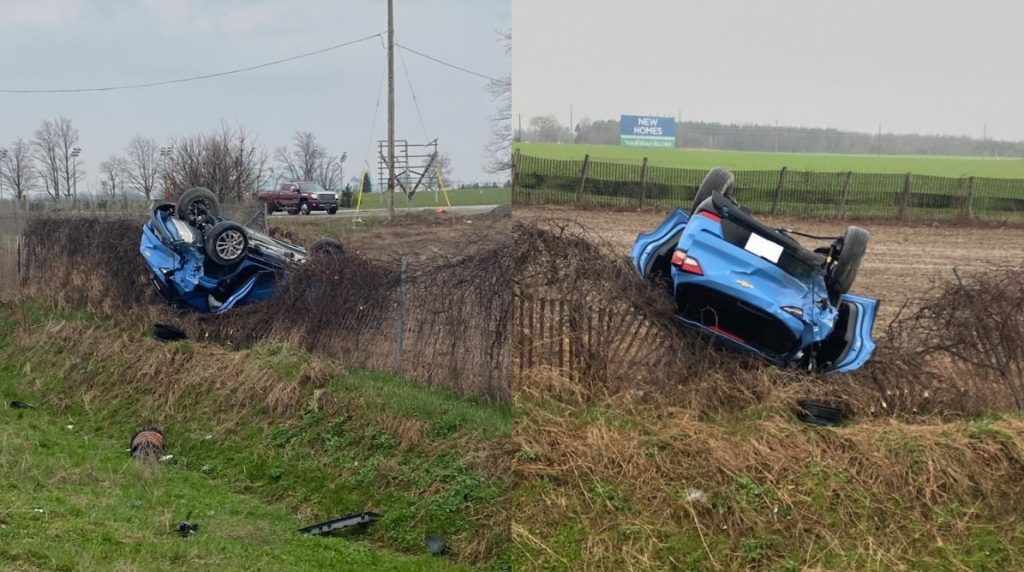Lac-Megantic: a lawyer for one of the accused says arrest was over the top
Posted May 13, 2014 1:46 pm.
This article is more than 5 years old.
The lawyer for one of the men facing criminal charges in the Lac-Megantic train disaster is blasting police for the “brutal” manner in which they stormed into his client’s residence to arrest him.
“It was the kind of arrest you would do for some heavily armed Hells Angel,” Thomas Walsh told The Canadian Press on Tuesday.
“Basically, the whole SWAT squad was there to arrest one guy who has been living in the same place since this tragedy happened.”
Walsh said Thomas Harding had been willing since last summer to appear in court voluntarily if the Crown ever decided to accuse him.
“They are just killing a mouse with a cannon,” Walsh said. “I don’t know what the purpose of it was but it was totally unnecessary.”
Harding, Jean Demaitre and Richard Labrie were arrested on Monday, with all three scheduled to be arraigned Tuesday afternoon on 47 charges of criminal negligence causing death.
The Crown also announced that Montreal Maine and Atlantic Railway, which is now insolvent, faces the same charges.
A conviction on charges of criminal negligence causing death carries a maximum life sentence.
The runaway train, which was carrying crude oil, barrelled into downtown Lac-Megantic in the early morning hours of July 6, derailed and exploded, killing 47 people.
Harding was the driver of the train, while Crown official Rene Verret identified Labrie as the railway traffic controller and Demaitre as the manager of train operations.
Verret said the arrests took place without incident — an assertion that Walsh disputed, at least in Harding’s case.
“He was out fixing his boat and his son was out there and a friend of the family,” Walsh said. “And these guys arrived like gangbusters, sirens absolutely wailing apparently.
“That reflects a certain attitude, which they like to think of as a hard-boiled attitude and I like to think of as a very juvenile attitude. You get hard-boiled when there’s someone you have to get hard-boiled with. Otherwise, you’re just playing cops and robbers.”
Walsh said he hopes any future trial is held in Lac-Megantic.
“I feel that the people of Lac-Megantic should be the people who try those who are accused. As a matter of human justice, if you will.”
In late March, a Crown spokesman said the province’s director of criminal and penal prosecutions had begun a review of the file.
Verret said prosecutors decided to file these charges after an analysis of the police evidence.
But they might not be the only ones charged. The Crown is still examining the file.
“Nothing is closed,” Verret said. “Today, we are able to bring charges against these individuals.”
The MM&A railway company is in the process of being sold. In January, bankruptcy judges in Quebec and Maine approved the sale of the insolvent railway to Railroad Acquisition Holdings LLC, an affiliate of New York-based Fortress Investment Group, for US$14.25 million. The deal has not yet closed.
The deadly crash raised questions about the transport of hazardous goods through towns in both Canada and the United States. The tragedy has also spurred several changes to procedure and policy.
Train service in Lac-Megantic was restored in December. Some of the region’s biggest employers depend heavily on the railroad to transport goods.
The MMA, which operates about 770 kilometres of track in Maine, Vermont and Quebec, agreed not to transport dangerous goods through the town.
Several civil suits have been filed, but the criminal charges mark a first.
The tragedy is still very real for many in the community.
Karine Blanchette, an employee of the Musi-Cafe, the establishment in the heart of town where many people died, lost many friends and colleagues and says nothing can erase memories of the tragedy.
“That there are criminal charges, I think it’s important,” she said. “Finally, there’s justice. But it does not bring back the people we lost and our heritage. The pollution in our environment will also remain.”
She believes authorities are not doing enough to prevent another tragedy from happening in Quebec.
“Even if people are sick of hearing about Lac-Megantic, I want Quebecers to know that what happened can still take place just about anywhere,” Blanchette said. “Citizens must speak out against hazardous materials passing through the middle of their town.”










